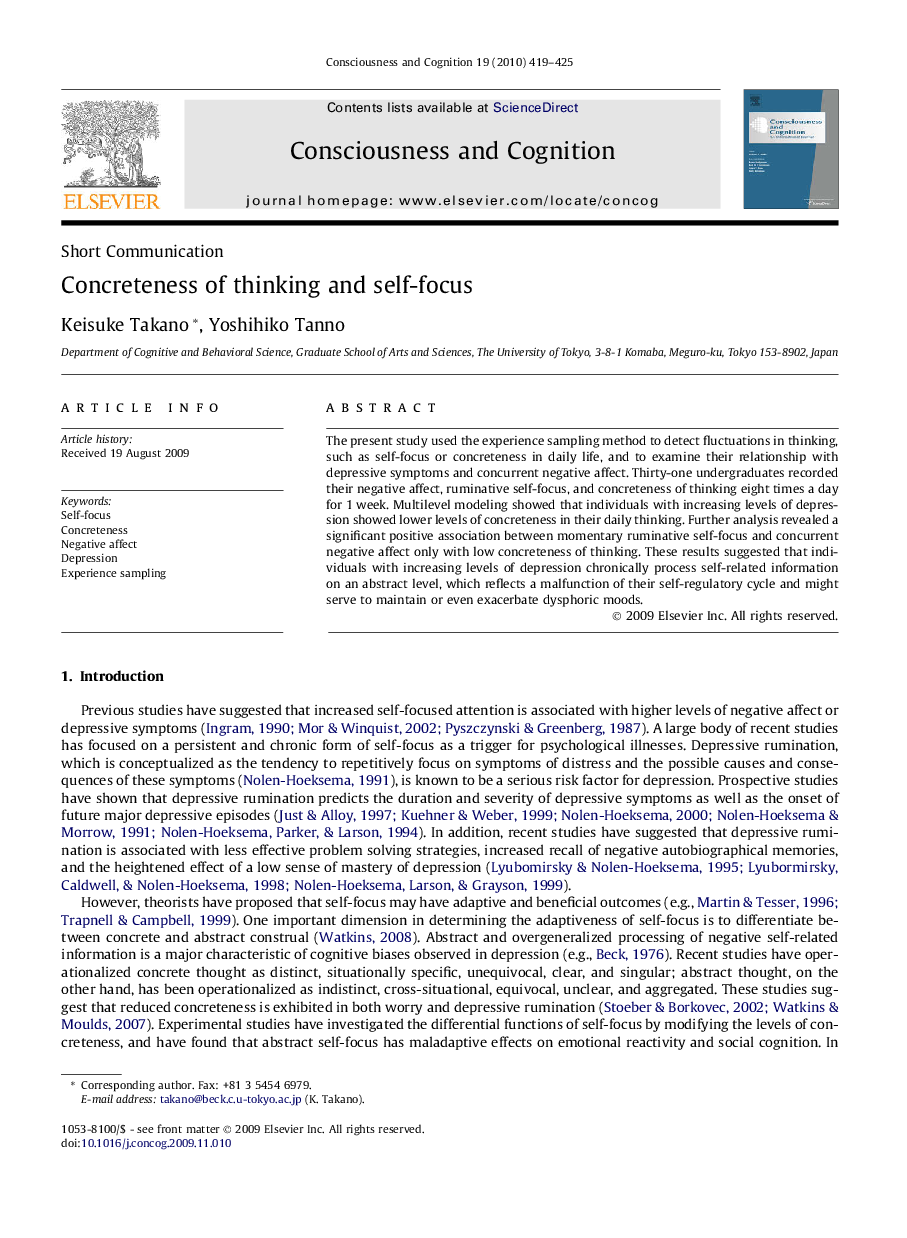| Article ID | Journal | Published Year | Pages | File Type |
|---|---|---|---|---|
| 10458791 | Consciousness and Cognition | 2010 | 7 Pages |
Abstract
The present study used the experience sampling method to detect fluctuations in thinking, such as self-focus or concreteness in daily life, and to examine their relationship with depressive symptoms and concurrent negative affect. Thirty-one undergraduates recorded their negative affect, ruminative self-focus, and concreteness of thinking eight times a day for 1Â week. Multilevel modeling showed that individuals with increasing levels of depression showed lower levels of concreteness in their daily thinking. Further analysis revealed a significant positive association between momentary ruminative self-focus and concurrent negative affect only with low concreteness of thinking. These results suggested that individuals with increasing levels of depression chronically process self-related information on an abstract level, which reflects a malfunction of their self-regulatory cycle and might serve to maintain or even exacerbate dysphoric moods.
Related Topics
Life Sciences
Neuroscience
Cognitive Neuroscience
Authors
Keisuke Takano, Yoshihiko Tanno,
